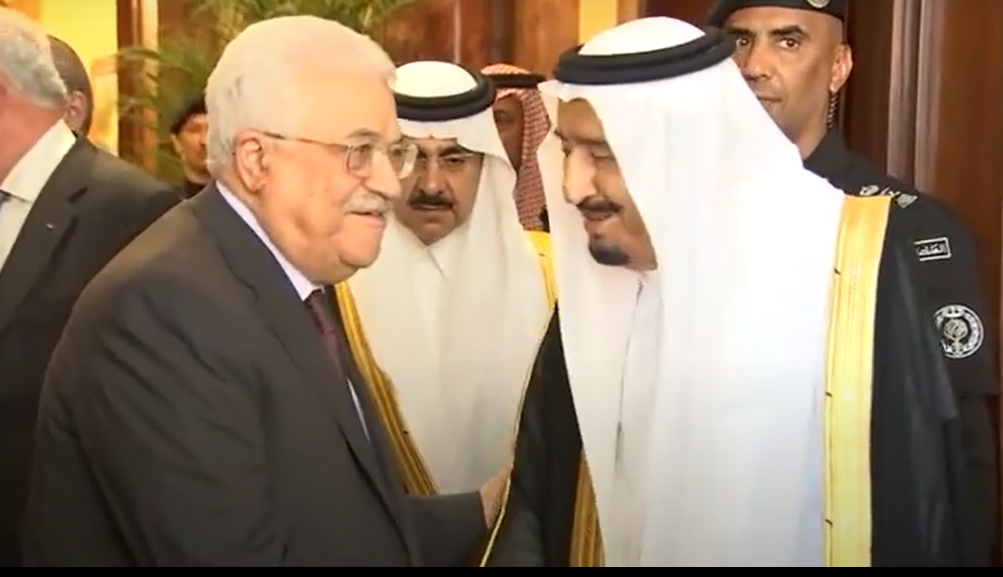A senior delegation from the PA, led by Hussein al-Sheikh, Secretary-General of the PLO’s Executive Committee, is scheduled to meet with Saudi leadership in Riyadh this week to discuss the anticipated normalization agreement with Israel.
Last week, Hussein al-Sheikh met with the new Saudi ambassador to the PA, who has also been recently appointed as the new Saudi consul in Jerusalem.
The PA claims that Saudi Arabia initiated this meeting, which marks the first in a series of meetings addressing efforts to achieve a normalization agreement between Israel and Saudi Arabia.
For the first time, PA representatives are expected to receive details about the talks that transpired between Saudi Crown Prince Mohammed bin Salman and US National Security Adviser Jake Sullivan regarding the possibility of a tripartite agreement involving the US, Saudi Arabia, and Israel.
Within this framework, the normalization of Israel’s relations with Saudi Arabia would be announced.
A senior PA official has denied the news published in the “Wall Street Journal” claiming that Saudi Arabia linked the renewal of financial aid to the PA to the expected normalization agreement.
He asserted that it is a political matter tied to Saudi Arabia’s relations with the PA.
According to the official, this relates to the presidency of former President Trump, who pressured Saudi Arabia to halt financial aid to the Palestinians. Now that Trump is no longer in office, Saudi Arabia can consider resuming aid to the PA.
The PA aims to ascertain Saudi Arabia’s position regarding the Arab Peace Initiative from 2002, which was initially proposed by Saudi Arabia.
It also intends to present the necessary conditions, from the Palestinian perspective, that would make them more amenable to the normalization agreement between Saudi Arabia and Israel.
The forthcoming meeting between the Palestinian delegation and Saudi leadership this week does not necessarily imply that a normalization agreement is imminent.
There are still significant differences of opinion between Saudi Arabia and the US on various aspects related to the tripartite deal.
Saudi Arabia views the normalization issue as just one component of the broader agreement and prefers not to isolate it from the other parts of the deal.
Saudi Crown Prince Mohammed bin Salman is not in a rush, whereas the PA contends that it is President Biden and Prime Minister Netanyahu who want to expedite the deal for their respective political gains.
President Biden seeks a Middle East political achievement before the US presidential elections, while the Israeli Prime Minister wants an accomplishment to pave the way for additional Arab and Islamic countries to join the normalization process, especially following the failure of negotiations between Israel and Libya regarding a normalization agreement.
A source close to PA Chairman Mahmoud Abbas asserts that the Palestinian leadership’s assessment is that Prime Minister Netanyahu is unable to pay the necessary political price for this deal concerning Palestinian demands.
The Palestinian Authority intends to present several conditions to the Saudi leadership for their acceptance of the normalization of relations between Saudi Arabia and Israel:
- An official Israeli commitment to the establishment of an independent Palestinian state with East Jerusalem as its capital.
- A freeze on settlements and the transfer of additional territories in Judea and Samaria from Areas B and C to full Palestinian sovereignty.
- The opening of a Saudi consulate in East Jerusalem, among other conditions.
As mentioned, Saudi Arabia is not in a hurry to conclude the agreement. Saudi Crown Prince Mohammed bin Salman believes that he holds the stronger hand in negotiations, with President Biden and Prime Minister Netanyahu in a weaker position.
The PA leadership has limited expectations of a breakthrough in normalization agreement negotiations and anticipates that Saudi Arabia will not sign such an agreement with an unstable right-wing government in Israel.
This government includes elements like ministers Itamar Ben Gvir and Bezalel Smotrich.
The PA draws lessons from the mistakes made by the United Arab Emirates in its normalization agreement with Israel.
According to American sources, the invitation extended to the Palestinian delegation to visit Saudi Arabia comes at the request of the US.
It aims to demonstrate the Biden administration’s commitment to preserving the option of a two-state solution and renewing negotiations between Israel and the PA.
The PA leadership assesses that an agreement between Saudi Arabia and the Biden administration is unlikely to be reached before the US presidential elections.
Saudi Arabia is unwilling to compromise on its demands for a nuclear reactor and advanced weapons systems from the US, which would provide military and strategic superiority against Iran.
Additionally, Saudi Arabia is concerned about being perceived as betraying the Palestinians, given its role as a leader in the Arab and Islamic world.
Therefore, the agreement must ensure a solution acceptable to all parties involved in the Palestinian issue.
Israel, too, is not ready for a limited normalization agreement with Saudi Arabia; it seeks a comprehensive and publicly acknowledged agreement.
PA Chairman Mahmoud Abbas believes that the right-wing coalition in Israel will not allow Netanyahu to make concessions to the Palestinians and is instead working toward the full annexation of Judea and Samaria.
Netanyahu relies on this coalition to maintain his rule and cannot afford to agree to Palestinian demands.



